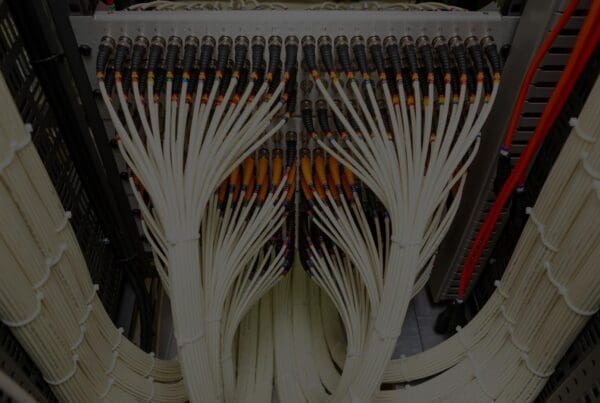The digital age has ushered in an insatiable appetite for faster and more reliable internet connectivity. Central to this evolution is the booming Fibre industry, which is fast becoming the backbone of our connected world. As nations race to upgrade their telecommunications infrastructures, the demand for skilled professionals like Fibre Engineers has skyrocketed. For many potential entrants and professionals in the field, one key question emerges: what is the Fibre engineer salary in 2023?
In this article, we’ll delve deep into the earning prospects, shedding light on the Fibre engineer salary, its influencing factors, and the potential growth trajectories in this promising domain.
The Fibre Industry Today:

- Over the past decade, the Fibre industry has experienced a transformative growth. From a niche segment to mainstream, Fibre-optic technology now underpins much of our daily digital interactions, thanks to its ability to deliver high-speed, reliable internet connectivity.
- As nations transition towards 5G — the next generation of wireless technology — the importance of a robust Fibre infrastructure cannot be overstated. 5G promises to revolutionise how we consume digital content, and at its heart lies the Fibre backbone. This global 5G push has exponentially amplified the importance of the Fibre industry, directly influencing the Fibre engineer salary and the demand for their expertise.
- Amidst this landscape, Fibre Engineers stand as the pivotal force driving the expansion and maintenance of these Fibre networks. Their role involves not only the technical aspects of laying and connecting Fibre cables but also diagnosing and troubleshooting issues, ensuring that the world remains seamlessly connected. The question, therefore, isn’t just about the Fibre engineer salary, but also the value and significance they bring to our modern digital framework.
The Role of a Fibre Engineer:

In today’s rapidly evolving digital world, the Fibre industry’s meteoric rise owes a significant portion of its success to the diligent professionals ensuring its seamless operations. Prominent among them is the Fibre Engineer. With responsibilities that span a vast spectrum, these engineers are indispensable pillars of our modern digital infrastructure.
Here’s a detailed look into what makes a Fibre Engineer so pivotal:
Responsibilities:
- Planning and designing intricate Fibre optic networks.
- Ensuring the proper installation, maintenance, and optimal performance of these networks.
- Expertise in tasks like splicing, testing, and troubleshooting.
Variety of Titles:
- The term ‘Fibre Engineer’ is not the only designation in this sector.
- Other titles such as ‘Fibre Optic Technician’ or ‘Fibre Engineering Trainee’ are also prevalent.
- Each title, though slightly varied in nature, plays a crucial role within the broader scope of the Fibre industry.
A Day in the Life:
- A Fibre Engineer’s day is dynamic and varied. It can start with schematic analysis in an office and transition to on-site installations by the afternoon.
- Continuous learning and adaptation to the latest in Fibre technology is a constant.
- The growing significance of Fibre Engineers in our digital era, combined with the complexities of their role, naturally brings the Fibre engineer salary into focus. As the industry’s trajectory continues its ascent, gaining insights into both the role and remuneration of these vital professionals becomes ever more crucial.
Fibre Engineer Salary

As the digital age continues its advance, the role of Fibre Engineers becomes increasingly crucial. But with the growing responsibilities and expectations, how does the Fibre engineer salary measure up? Delving deep into the remunerative side of this profession, here’s what emerges:
Trainee Fibre Engineer Salary:
- Before one fully steps into the shoes of a Fibre Engineer, many start their journey as a Trainee. The role, while foundational, offers valuable insights and experiences.
- On average, a Trainee Fibre Engineer can expect a salary ranging between £22,000 and £25,000 annually.
The Evolving Ladder of Remuneration:
As professionals climb the Fibre engineering hierarchy, the salary sees a corresponding rise.
- Fibre Engineer: The average salary orbits around £34,000 per year, with the potential to vary between £27,000 and £42,000 based on various factors.
- Senior Fibre Engineer: Taking a step up, professionals can anticipate an average of approximately £53,000 annually.
- Fibre Engineering Manager: Overseeing teams and ensuring optimal project delivery, these managers can expect around £60,000 per year.
What Determines the Fibre Engineer Salary?
Navigating the Fibre industry, one realises that while the role and expertise of a Fibre Engineer are pivotal, the salary isn’t solely based on the job title. Several variables come into play, defining the Fibre engineer salary landscape. Let’s delve deeper into these determining factors:
- Location: The geographical area of operation plays a significant role. Urban centres, tech hubs, and cities with dense populations usually experience a higher demand for Fibre infrastructure. This not only means more job opportunities but often translates to higher salaries. In contrast, remote or less-developed regions might offer fewer financial incentives due to lower demand and budget constraints.
- Company Size and Reputation: Like in any industry, the stature and reputation of the employer can heavily influence salary packages. Established telecommunication giants with a vast clientele and resources may offer better salaries, comprehensive benefits, and additional perks. On the other hand, startups or smaller companies, while perhaps offering a more intimate or innovative work environment, might have a tighter budget, leading to a potentially reduced salary range.
- Certifications and Continuous Learning: The world of Fibre technology is evolving rapidly. Engineers who proactively seek advanced certifications or specialised training courses often stand out in the crowd. These additional qualifications not only provide them an edge in terms of technical proficiency but can also be a significant bargaining chip during salary negotiations.
- Experience and Skill Set: It’s a universal truth; with experience comes expertise. Seasoned Fibre Engineers, with years of hands-on experience and a proven track record, are often in a position to command higher salaries. Their familiarity with various scenarios, ability to handle complex projects, and manage teams can make them invaluable assets to companies.
- Scope of Responsibilities: A Fibre Engineer involved in standard installations and maintenance might have a different salary structure compared to someone responsible for strategic planning, leading teams, or managing large-scale projects. The breadth and depth of one’s responsibilities in their role can influence their compensation.
Understanding these factors offers a holistic view of the Fibre engineer salary landscape, guiding both professionals aiming to maximise their earnings and employers striving to offer competitive packages.
Skills, Qualifications, and Certifications Influencing the Fibre Engineer Salary
When diving into the Fibre industry, the Fibre engineer salary is often a reflection of one’s skills, qualifications, and overall expertise. But what specific attributes and credentials can influence this?
Hard Skills and Technical Proficiency
These are the foundational skills every Fibre Engineer needs. It includes understanding Fibre optic technology, hands-on experience with installations, testing, maintenance, and troubleshooting. Mastery in these areas can significantly impact the Fibre engineer salary, as companies value technical proficiency.
Certifications
In the rapidly evolving world of Fibre optics, staying updated with the latest certifications can give a boost to a Fibre engineer’s salary. Some of the top certifications in the industry include Certified Fibre Optic Technician (CFOT) and Advanced Fibre Optic Certification. Earning these not only reflects one’s commitment to the profession but can also be a differentiator in salary negotiations.
Soft Skills
Beyond the technical, certain non-technical attributes can influence a Fibre engineer’s salary. Customer service skills, for instance, are essential, especially for engineers interacting directly with clients. Being able to explain complex Fibre-related matters in layman’s terms or addressing client concerns can be invaluable. Additionally, teamwork and collaborative skills are critical. Engineers often work in teams, and the ability to collaborate smoothly can lead to successful project completions and, subsequently, salary enhancements.
Continuous Learning
The Fibre industry is dynamic. Thus, a Fibre Engineer’s commitment to continuous learning can influence their Fibre engineer salary trajectory. Regularly attending workshops, webinars, or courses related to emerging Fibre technologies or best practices can position an engineer as a valuable asset, deserving of a higher salary bracket.
Other Qualifications
While specific Fibre-related certifications are crucial, other qualifications, like a degree in telecommunications, electronics, or related fields, can also play a part in determining the Fibre engineer salary. Such formal education provides a foundational understanding of the broader industry, making the engineer versatile and more adaptable to various roles within the sector.
While the Fibre engineer salary is certainly an outcome of one’s technical prowess, the blend of continuous learning, soft skills, and other qualifications equally contribute to the financial recognition an engineer receives in the industry.
Career Progression and Opportunities:
Enhancing the Fibre Engineer Salary and Growth Potential

The journey of a Fibre Engineer is filled with myriad opportunities, each offering unique challenges, learning experiences, and of course, potential enhancements to the Fibre engineer salary. As this field evolves, professionals have the chance not only to move up the career ladder but also to branch out into related sectors.
Starting as a Trainee
Everyone begins somewhere. The initial phase as a Trainee Fibre Engineer offers invaluable hands-on experience. At this stage, the Fibre engineer salary may range from £22,000 to £25,000 annually. However, it’s more about the learning and the foundation you’re building for a prosperous future in the industry.
Scaling the Hierarchy
As a Fibre Engineer gains experience and expertise, they can ascend to roles with greater responsibility. A qualified Fibre Engineer can expect an average salary around £34,000, which can range between £27,000 and £42,000 based on the company and location. With even more experience and perhaps additional certifications, they might advance to a Senior Fibre Engineer position, where the average salary hovers around £53,000. Beyond that, taking on managerial responsibilities as a Fibre Engineering Manager can bring in an average salary of £60,000 per year. Each of these roles not only offers a boost to the Fibre engineer salary but also adds diverse experiences to one’s portfolio.
Lateral Movements
The skills acquired in Fibre engineering aren’t just limited to one specific domain. Many of these skills are transferable. For instance, understanding of network infrastructure can be invaluable in broader telecommunication projects. Likewise, project management skills acquired as a Fibre Engineering Manager can be applied in other tech industries. Exploring these lateral movements can provide varied experiences and sometimes even lead to a spike in the Fibre engineer salary, depending on the industry and role chosen.
Beyond Traditional Roles
With the global push towards 5G and the increasing complexity of our digital infrastructures, Fibre Engineers might also find opportunities in emerging domains like 5G network planning, smart city infrastructure development, or even in training and consultancy roles, guiding the next generation of engineers.
The Fibre industry’s landscape is vast and varied. From the traditional career progression to the opportunity to branch out into related fields, a Fibre Engineer’s journey is paved with chances to continuously learn, grow, and optimize their Fibre engineer salary. The key lies in seizing these opportunities, continuously upskilling, and adapting to the ever-evolving technological landscape.
Conclusion
In today’s digital era, Fibre Engineers stand as the unsung heroes, ensuring every click and call is seamlessly connected. The insights into the Fibre engineer salary and growth prospects underscore the significance and rewards of this career.
For those considering their next career move, the role of a Fibre Engineer offers not only competitive compensation but also the chance to shape the digital infrastructure of tomorrow. The Fibre industry, constantly evolving with the advent of technologies like 5G, promises a horizon filled with opportunities.



